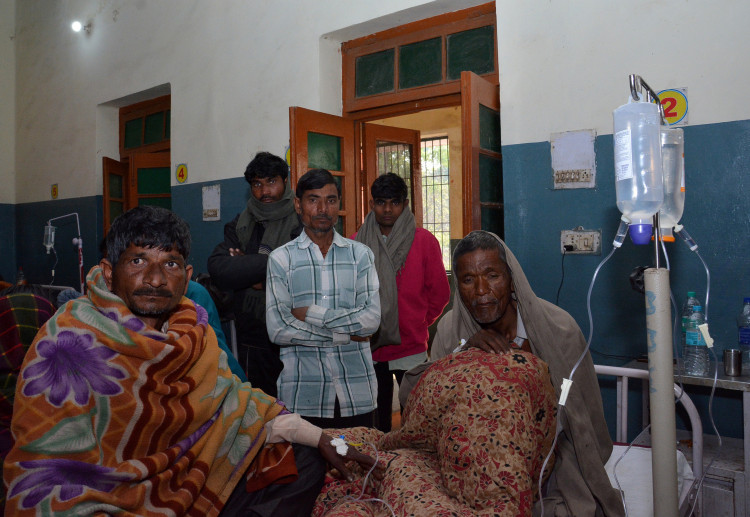The continued selling and consumption of home-made alcohol in India has now claimed the lives of at least 154 people. The consumption of the highly toxic moonshine has also resulted in the hospitalization of 200 other people in the country. The unregulated alcohol, locally named "country-made liquor" in Assam, continues to be used by impoverished villages within the country, despite heavy warnings from health agencies.
Local authorities have so far arrested thirty-four people, who are all suspected of being involved in the manufacturing and distribution of the illegal drink. Dozens of other residents are being questioned and investigated to gather more information about the country's illicit bootlegging operations. Authorities are also trying to determine the mixture that was used in the creation of the toxic drink that resulted in the deaths of so many people.
According to a senior police official in Golaghat district, methanol may have been added to the mixture, which resulted in immediate methyl alcohol poisoning of the victims. The first incident of the poisoning happened in the Jorhat district, where most of the victims were tea garden workers and nearby village residents.
The Indian government has so far been unsuccessful in putting a stop to the distribution and selling of illegal liquor in the country. The drink is seen as a readily available and cheap alternative to other products and is mostly used by people living in impoverished areas.
Last month, 80 people had died in Uttar Pradesh and Uttarakhand caused by a tainted batch of homemade liquor sold in the area. Authorities arrested eight people and seized at least 400 liters of illegal moonshine. Prior to the most recent poisoning incident, 100 people in the Mumbai slum areas had died from ingesting toxic moonshine. So far, the deadliest occurrence happened in 2011, where 168 people were pronounced dead after drinking country-made liquor in the state of West Bengal.
Majority of the illegal drink is manufactured outside of large cities. The drink is brewed mostly in small villages before being transported to different cities. A glass of illegal alcohol typically costs US$0.10 a glass, which is significantly cheaper than legally distributed alcohol. Without any type of regulation, brewers often add rubbing alcohol or methanol to their mixtures in order to increase potency. Getting the mixtures wrong can result in methanol poisoning, which will cause dizziness, drowsiness, headaches, and confusion. Too much methanol consumption can eventually lead to death.






